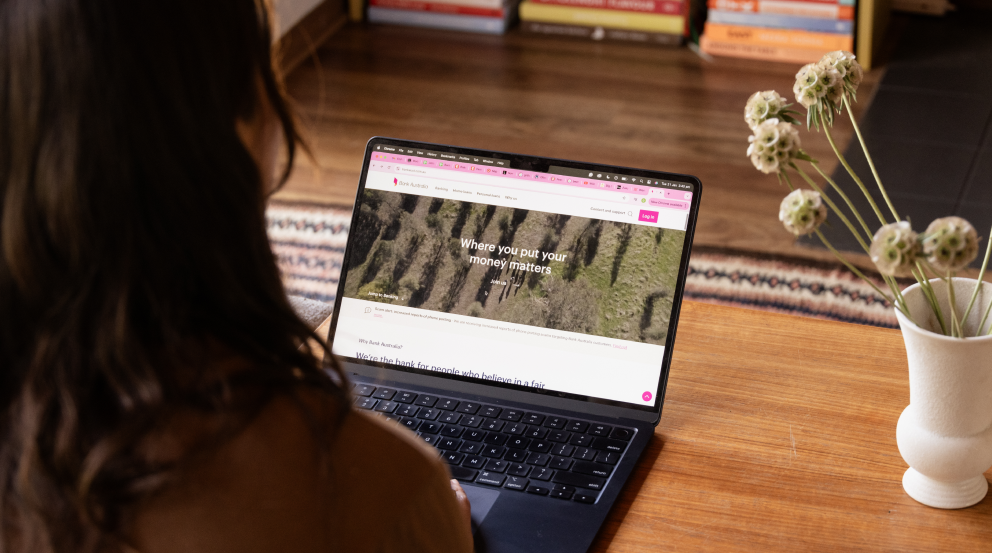Investing in real estate can be a fantastic way to achieve your financial goals. Once you’ve decided it’s the right strategy for you, finding the ideal property is probably the most important step of all. Let’s take a look at what makes for a great investment property.
Take off your homeowner hat
In many cases, people think of buying an investment property more as a wealth building or asset building exercise rather than an emotional one. It doesn't need to have all the features of the ideal home for you, which helps to narrow focus and makes property searching easier.
An example is the concept of “rentvesting” which refers to renting in a location where home ownership might be out of your reach (but where the lifestyle suits you) and buying a property in a more affordable location. Your investment property lets you get a foot in the door as an investor and provides you with rental income to help offset the loan repayments.
How to learn about the property market
Researching the market and coming up with a shortlist can seem overwhelming. Fortunately you can find information from sources as diverse as the ABS, specialist property data sites like CoreLogic and the major real estate portals like Domain.com.au and Realestate.com.au.
Median house and apartment prices, past suburb performance and rental returns are just some of the statistics available. Specifics like closeness to shops, schools and public transport are other valuable indicators you can pick up from these sources.
Here are some of the factors which may be important to consider while you conduct your research on an investment property:
Where should you buy an investment property?
Location is often the first thing investors consider when choosing a property. An area and suburb that is right for your investment goals could help deliver the best returns for you.
Cities that score highly on liveability, thriving suburbs with great infrastructure and amenities, and growing regional areas with new job opportunities all have their appeal.
Many investors choose inner city suburbs for consistent rental income. Regional and country areas where jobs are multiplying are also being looked at as new investment property hot spots.
About the local economy and infrastructure
People generally want to live close to where they work. Choosing a property where the local economy is strong and businesses are opening up means that more jobs are likely to be created. In an area with higher employment opportunities and more people needing accommodation, properties are naturally more in demand.
Infrastructure like roads, train stations, parks and shopping centres is another feature which influences the desirability of a particular location. The quality of local schools can also influence a property’s value and appeal to families with children.
What about Airbnb and vacation rentals?
Many travellers are turning away from hotels for a more authentic, home-away-from-home experience when they’re on holidays. Airbnb and homestyle-rentals had taken off because of this trend.
If you plan to invest in a property to rent out to holiday-makers on a short-term basis, think about something in a major city close to key amenities or in an area that's a well-known tourist destination. Other factors that may appeal to travellers are unconventional properties with a unique design feature or outlook.
Is there an ideal property type for investors?
Units, townhouses and freestanding houses all have their merits, and if you are thinking about buying an investment property, you might be wondering which one is best. Regardless of which route you go down, location, size and condition are just a few of the factors that come into play with your decision-making.
Apartment and townhouse investing
Apartments and townhouses can often be a more affordable option to purchase and, as costs are shared with others in the building or complex, also to maintain. However, they have a:
- lower share of land value
- habit of appreciating more slowly in locations where there’s an oversupply of similar properties.
Investing in houses
Houses typically offer greater long-term capital growth than apartments, plus you potentially have freedom to make improvements to increase their value, such as extending or subdividing. The downsides are that houses:
- are often more costly
- can be more difficult and expensive to maintain
- and their rental yield (the amount of money you make on an investment property, compared to its purchase price as a percentage) can be lower than an apartment.
Buying new or established properties
The decision to invest in a new or established building is an important issue to consider when buying an investment property. As an investor, the newer the property, the greater the amount of depreciation that could be available to you at tax time.
New houses and apartments can often require less maintenance and be more attractive to tenants. They can also pose a greater risk of price instability, especially if they're in a community with a glut of similar properties.
Older, established properties may be more affordable and have more potential to add value, but may require you to spend money on them if they’re run down and have less appeal for tenants if their design is outdated.
In it for a quick win?
News of property market increases and record sales sway some investors into thinking they can succeed overnight. However, market fluctuations and shifting demographics are common, and patience is often the key to realising gains.
The timeframe for realising returns could be up to a decade depending on where and what type of property you buy. That's why most people invest in properties for the long term.
How are your finances going?
Whatever type of property you decide to invest in, it’s a great idea to make sure you’ve got a good grip on your personal finances before taking the plunge. Talk to your lender to get an idea of how much you may be able to borrow so that you start looking at areas that suit your goals and budget.
Keen to learn more?
Explore the range of Bank Australia home loans, read about becoming a landlord for the first time and explore our tips for property investors.
%2520(1).webp)





.png)

